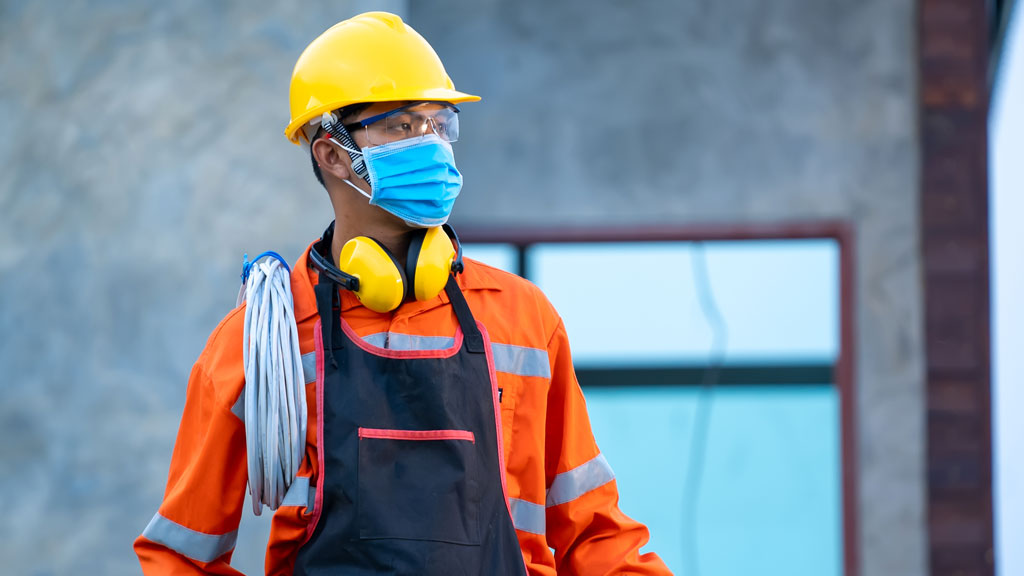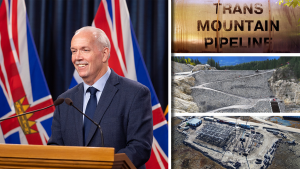The construction industry has been impacted by the COVID-19 pandemic as much, or more than, any other industry in Ontario and across Canada. The deadly respiratory virus is more easily transmitted indoors than out, but construction workers are not immune from becoming infected or taking the virus home to family members and the community.
The advent of highly effective and safe Health Canada approved vaccines has provided hope. However, not all construction workers or their unions have been vaccinated and not all employers have introduced mandatory proof of vaccination policies.
Many construction associations and contractors have asked the question: is it worth it to introduce a mandatory proof of vaccination policy?
To help answer that question, we now have some guidance from an arbitration decision. In United Food and Commercial Workers Union, Canada Local 333 and Paragon Protection Ltd. (Von Veh Decision), arbitrator Von Veh considered the United Food and Commercial Workers Union, Canada Local 333’s (UFCW) grievance alleging Paragon Protected Ltd.’s mandatory vaccination policy was unreasonable.
On Sept. 3, 2021, Paragon introduced its policy which required that all employees be vaccinated by Oct. 31, 2021. Failure to do so would result in an employee’s removal from a jobsite, following which they would either be transferred to another site or placed on an unpaid leave of absence.
Paragon’s policy was implemented in part due to the requirements of its clients. Paragon employs 4,400 security guards who are members of the UFCW bargaining unit and who are distributed to approximately 450 client worksites across Ontario. As a result of client requirements, the policy applied to at least 226 of the 450 client worksites.
The UFCW’s primary submission was that the policy was unreasonable in that it failed to comply with the KVP test, which requires that a rule unilaterally introduced by an employer and not subsequently agreed to by the union satisfy the following requirements:
- It must not be inconsistent with the collective agreement.
- It must not be unreasonable.
- It must be clear and unequivocal.
- It must be brought to the attention of the employee affected before the company can act on it.
- The employee concerned must have been notified that a breach of such rule could result in his discharge if the rule is used as a foundation for the discharge.
- Such rule should have been consistently enforced by the company from the time it was introduced.
The UFCW characterized the policy as “do it or else,” which they argued was unreasonable in the circumstances. The UFCW relied on the previous “vaccinate or mask” cases wherein Ontario arbitrators found vaccination policies during the annual influenza season were unreasonable in the circumstances, largely because the available science did not support the reasonableness of such policies.
Paragon also argued the policy complied with the KVP requirements and was reasonable in light of the client facing nature of the work its security guard employees perform. Paragon refuted older “vaccinate or mask” case law as inapplicable in pandemic circumstances where the science clearly supported the efficacy of COVID-19 vaccinations.
Further, Paragon argued the policy was necessary to meet its obligations under the Ontario Occupational Health and Safety Act (OHSA) to ensure a safe workplace.
Paragon further argued the policy provided for the necessary exemptions in accordance with the code. Employees were able to request an exemption upon providing medical support from a family physician.
Arbitrator Von Veh’s decision
Arbitrator Von Veh dismissed the grievance and had little difficulty finding that the policy was reasonable in the circumstances of the deadly COVID-19 pandemic. Specifically, the arbitrator found the policy struck an appropriate balance between the rights of employees who have not or do not wish to be vaccinated while simultaneously maintaining a safe workplace for all other employees, clients and members of the public.
In finding that receiving the COVID-19 vaccination was voluntary, the arbitrator held personal preference of an employee to refuse vaccination did not override the scientific evidence regarding the efficacy of the COVID-19 vaccinations. The arbitrator was careful to underscore that this did not in any way detract from legitimate requests for accommodation based on exceptions pursuant to the code, which were appropriately accounted for by the policy.
The arbitrator specifically cited Paragon’s obligation under section 25(2)(h) of the OHSA which obligates Paragon to take “every precaution reasonable in the circumstances for the protection of its workers.” The OHSA also promotes the internal responsibility system and requires workers to not work in a manner that may endanger themselves or another worker.
Finally, the arbitrator distinguished the UFCW’s reliance on the older “vaccinate or mask” cases as these cases did not address pandemic conditions and were therefore not comparable. Overall, the arbitrator ordered only minor revisions to the policy. As not all employees had access to a family physician, the policy had to be amended to allow for other medical professionals to provide support for an employee’s request for an exemption.
Considerations for employers
In the Von Veh Decision, the security guard employees at issue were directly client facing and these employees required client site access at all times to perform their work. This case has facts similar to the circumstances of most construction projects: significant interpersonal contact with co-employers and other workers.
Therefore, when construction companies develop or enforce their own vaccination policies, employers must be cognizant of the actual COVID-19 risks present in their workplaces.
Norm Keith is a Partner at KPMG in Canada and is one of the leading occupational health and safety lawyers in the country. Keith and a team of employment and labour lawyers are able to assist employers with all COVID-19 related issues, including vaccination policies. Contact Keith at: Norm Keith – KPMG Canada (home.kpmg). Send Industry Perspectives comments and column ideas to editor@dailycommercialnews.com.











Recent Comments
comments for this post are closed